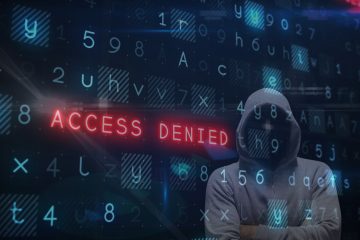Five years of living in China spoiled me in terms of financial transactions. Most people don’t use debit or credit: they either use cash or more commonly, send money electronically via mobile apps. Mobile wallet apps are often used for large payments, and your landlord or utility company is just as likely to accept them as the friend you’re splitting lunch with. You can log in to your bank’s website or ATM and send someone a million dollars as easily as a few bucks.
Then I moved back to the US.
I owed several thousand dollars to a friend. At first, I tried to find a way to send the money electronically through my bank. You need a business bank account to send via ACH transfer. I could do a wire transfer, but my bank charges the sender $30 and the recipient $15, and requires a lot of information about the recipient’s bank account. I tried this thing called “Zelle” — a new payment network that most major banks have introduced. Much as we tried, we could not get a $5 test transaction to reach my friend. Zelle also has a $2000 daily limit. I looked into Venmo, but the daily limits are too low. PayPal charges 2.9% of each transaction.
Dejectedly, I wrote a check. A check is a piece of paper dating back to the ancient Roman empire on which you — get this — just write down the amount to be transferred to someone else’s bank account. In theory, only the recipient of the check can cash it, but there are exceptions, and not all financial institutions are strict about this.
I thought that was the end of the story until my friend informed me that he had not received my check. Actually, before that, my letter bounced back to me because the stamp somehow fell or was detached. Apparently, I did not apply enough of my saliva to make it last to its destination. I occasionally have my emails bounced, but at least I don’t need to worry about expending sufficient bodily fluids for my messages to reach their independent recipient.
Anyway, we now had a real mess. A check lost in the mail means one of four things:
1: The United State Post Office lost the letter
2: The letter was delivered, but someone had taken it from the mailbox (my friend was on vacation at the time it was delivered)
3: The sender lied about sending the check
4: The recipient lied about receiving the check
Now, I’d like to think that my friend is trustworthy, but how well do I really know him? And how well does he know me? And what about the teenager he asked to watch his house while he was away? A single failure in our payment system had thrown our whole relationship into doubt. And what about the USPS? I only just learned that you’re supposed to wrap checks in a sheet of paper so USPS workers don’t steal your money. Since when do I need to worry about the US Government stealing my money? (Don’t answer that.)
If we used Bitcoin, the entire transaction would be safely done in one minute. Imagine if the entire financial sector did that.So here is what I did next: first I drove to my bank to put a stop payment on the check ($30 fee). Then I drove to a UPS store and sent another check via certified mail (another $10). After hours of lost productivity and $40 in fees, I needed to wait another week to see if we can put this behind us.
That’s still not the end of the story. Banks are required to report all transactions over $10,000 to the U.S. government, and if the FinCEN or the IRS finds my transaction record suspicious, I may be investigated.
That’s the real reason why financial transactions are outdated, expensive, and buggy: a massive amount of government regulation deters innovation in the Western financial system. While politicians claim to do this in the name of safety, it’s really all about preserving tax revenue. Countries like Hong Kong, Luxembourg, and Singapore with the fewest financial regulations also have simple tax systems with low rates. But politicians want their cut, and they have no problem forcing us to use an expensive and unreliable financial system to get it.
What if we used Bitcoin instead? My friend could send me a payment request with his address. I would open it, click “Send,” and we’re done. I can be absolutely certain that the transaction was successfully sent to the intended recipient, and the recipient can be certain that the funds are irreversibly his. It costs the same (under a dollar) and works equally well for $5, $50, or $5 billion dollars. And, if done properly, the transaction can be completely anonymous.
Can you imagine if the entire finance sector worked like this? Many people are working to make this happen.
Reprinted from Liberty.Me.



